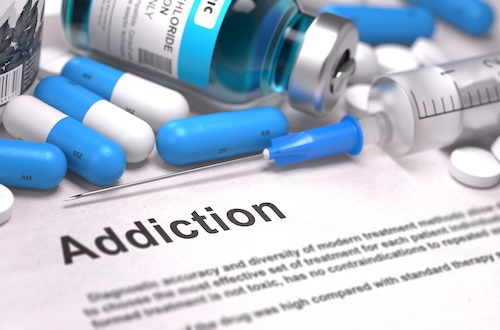Medically Supervised Detox: What You Need To Know
At Carolina Recovery, we provide safe and effective addiction treatment at our Durham facility. Our team of physicians, nurse practitioners, physician assistants, and clinical staff specialize in medically supervised detox, inpatient treatment, and outpatient programs. We focus on stabilizing patients during the withdrawal process, addressing both physical health and mental health, and guiding each person toward long-term recovery.
Medically supervised detox is the safest way to begin recovery from alcohol, opioids, and other addictive substances. The detoxification process takes place in a medical setting where physicians, nurse practitioners, and nursing staff monitor patients closely to manage withdrawal symptoms and protect both physical and mental health.
At Carolina Recovery’s Durham addiction treatment center, patients receive constant medical care during detox to reduce risks, prevent relapse, and prepare for long-term addiction treatment.
What is Medically Supervised Detox?
Medically supervised detox is the first step in safe and effective addiction treatment. It takes place in a structured medical setting where patients receive constant care from trained professionals.
Definition of Medically Supervised Detox
A medically supervised detox program helps people who are physically dependent on alcohol, opioids, or other drugs. The process involves careful monitoring of vital signs, medical assessments, and the use of medications to alleviate withdrawal symptoms. Clinical staff such as physicians, nurse practitioners, and physician assistants ensure that detoxification is both safe and effective.
Why It Matters
Detoxification without medical support can be life-threatening. Severe withdrawal symptoms like seizures, delirium tremens, and extreme anxiety require immediate medical care. A medical detox facility provides the structure needed to manage these risks and prevent relapse. Carolina Recovery’s inpatient detoxification programs offer patients a safe environment where physical health and mental health are monitored closely by a dedicated medical team.
How It Works
The detoxification process begins with a comprehensive assessment. This step allows medical staff to understand the patient’s medical history, substance use patterns, and mental health disorders. Based on this information, the treatment team develops an individualized medical detox program. Patients are then guided through the withdrawal process with support, medication assisted treatment, and continuous supervision from clinical staff.
Why Medically Supervised Detox is Essential
Medically supervised detox provides the safest path for people struggling with substance dependence to begin recovery.
Risks of Unsupervised Detox
Attempting detox at home without medical support can lead to serious complications. Severe withdrawal symptoms such as seizures, delirium tremens, or irregular vital signs can quickly become dangerous. People who are physically dependent on alcohol, opioids, or other drugs face a high risk of relapse when detox is attempted without medical oversight.
The Role of Medical Supervision
A medical detox facility offers constant monitoring from physicians, nurse practitioners, and nursing staff. Clinical staff track vital signs, manage physical health, and provide medications to alleviate withdrawal symptoms. This level of medical care reduces the risk of complications and creates a safer detoxification process.
Protecting Mental and Physical Health
Substance use disorders often occur alongside mental health disorders. Medically supervised detoxification addresses both, ensuring that patients receive care for withdrawal symptoms as well as mental health support. At Carolina Recovery, the medical team focuses on stabilizing patients physically and emotionally so they can continue into inpatient treatment or outpatient programs.
Preventing Relapse
The withdrawal process can trigger strong cravings. Without medical support, these cravings often lead to relapse. Medically supervised detox provides a structured medical setting where medications, monitoring, and support reduce the chance of returning to drug abuse or alcohol use. Carolina Recovery’s addiction treatment programs in Durham guide patients through detox and into longer-term recovery options.
The Detoxification Process Step-by-Step
The detoxification process is a structured medical program that helps patients manage withdrawal symptoms safely.
Comprehensive Assessment
The process begins with a comprehensive assessment. Clinical staff review the patient’s medical history, substance use disorders, and mental health disorders. This initial assessment allows the medical team to create an individualized medical detox program. It also ensures that vital signs and physical health are considered before the withdrawal process begins.
Managing Withdrawal Symptoms
Once the assessment is complete, patients enter the withdrawal process. Withdrawal symptoms can vary by substance. Alcohol withdrawal may involve delirium tremens, seizures, or severe anxiety. Opioid withdrawal often includes nausea, muscle pain, and cravings. Medical professionals use medications and constant monitoring to alleviate withdrawal symptoms and reduce risks.
Medication Assisted Treatment
Medication-assisted treatment is used to stabilize patients who are physically dependent on alcohol, opioids, or other substances. Physicians and nurse practitioners provide medications that ease cravings and support the detoxification process. This approach helps patients remain safe and lowers the chance of relapse during early recovery.
Continuous Medical Monitoring
During inpatient detoxification, patients are supervised around the clock by nursing staff, physician assistants, and other clinical staff. Vital signs are tracked to identify changes in physical health. Immediate adjustments can be made to medications or treatment options to protect the patient’s well-being.
Transition to Ongoing Treatment
Detoxification is the first step in recovery, but it is not a cure for substance abuse. After the withdrawal process is complete, patients move into inpatient treatment or outpatient settings. At Carolina Recovery, the medical team helps patients transition into addiction treatment programs that focus on relapse prevention and long-term recovery.
Who Needs a Medical Detox Program?
A medical detox program is essential for people who are physically dependent on addictive substances and need medical supervision to stop safely.
People with Substance Use Disorders
Anyone with substance use disorders may require a medically supervised detoxification program. These patients often experience severe withdrawal symptoms when they stop using drugs or alcohol. Medical professionals in a medical facility can provide constant monitoring, medications, and support to manage these symptoms.
Patients with Alcohol or Opioid Dependence
Alcohol addiction and opioid use disorder are two of the most common reasons for entering a medical detox facility. Withdrawal from alcohol can cause seizures or delirium tremens, while opioid withdrawal can produce severe physical pain, cravings, and nausea. Carolina Recovery offers inpatient detoxification programs to stabilize patients and protect their health during these critical stages.
People with Co-Occurring Mental Health Disorders
Many patients who struggle with substance abuse also face mental health disorders. These conditions can make the withdrawal process more difficult and dangerous. A medical detox program allows clinical staff to monitor both physical health and mental health, ensuring that patients receive comprehensive medical care.
Patients at High Risk of Relapse
Individuals who have relapsed after attempting detox on their own are strong candidates for a medically supervised detox program. The structure of a medical detox facility provides the oversight, medications, and treatment options needed to prevent relapse and support long-term recovery. At Carolina Recovery, the medical team helps patients transition from detox into inpatient treatment or outpatient programs.
Treatment Options After Detox
Detox is the first step in recovery, but it must be followed by structured treatment to prevent relapse and support long-term health.
Inpatient Treatment
Inpatient treatment provides 24-hour medical care and clinical support after the detoxification process. Patients live in the medical facility, where physicians, nurse practitioners, and nursing staff monitor physical health and mental health. Inpatient programs are recommended for people with severe substance use disorders, co-occurring mental health disorders, or a high risk of relapse.
Outpatient Treatment
Outpatient treatment allows patients to receive medical care and therapy on an outpatient basis while living at home. This option may be appropriate for individuals with strong support systems, less severe substance dependence, or those who cannot commit to inpatient detoxification programs. Outpatient settings provide flexibility while continuing to address substance abuse and relapse prevention.
Counseling and Therapy
Both inpatient and outpatient programs include counseling and therapy. These services help patients understand the causes of their substance use, develop coping strategies, and strengthen mental health. Therapy sessions can address depression, anxiety, and other mental health disorders that contribute to substance dependence.
Long-Term Recovery Support
Treatment options after detox focus on building a foundation for long-term recovery. Carolina Recovery offers addiction treatment programs that combine medical care, therapy, and relapse prevention strategies. This comprehensive approach ensures patients receive the support needed to move from medically supervised detox to a healthier life.
Start Your Recovery with Medically Supervised Detox Today!
The team at Carolina Recovery in Durham is ready to guide you through a safe and effective medically supervised detox. Our medical professionals provide 24-hour support to manage withdrawal symptoms, protect your health, and prepare you for long-term addiction treatment. Do not wait until symptoms become life-threatening.
Schedule an appointment with us at (812) 408-8842 today!







